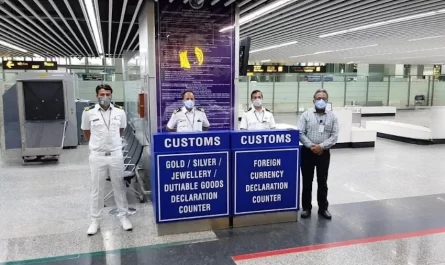In-Flight Illness: Steps to Take If You Get Sick While Flying
Contents
Getting sick on an airplane is arguably one of the least desirable experiences one can encounter. Despite our best efforts, illness can strike mid-flight in various unsettling and sometimes hazardous ways. Travelers might face a range of health issues, including nausea, diarrhea, headaches, dizziness, congestion, blood clots, sinus infections, and tinnitus, all while thousands of feet above ground. These conditions can suddenly become a traveler’s unwelcome companions during their journey through the skies.
The closed environment of an aircraft, combined with the excitement or anxiety of travel, can sometimes lead to unexpected health issues. But fear not! Airlines are well-prepared to handle medical situations, ensuring that help is at hand and you can still reach your destination safely. Here’s your guide to understanding what happens if you fall ill mid-flight and how to handle the situation like a pro.
Experiencing nausea and vomiting during air travel is not unusual, which is why each seat is equipped with air-sick bags for passenger convenience. Depending on local regulations, the flight crew may be able to offer medication to alleviate these symptoms. However, an outbreak of mass diarrhea on a plane poses a significant challenge due to the limited number of onboard toilets. Such an extreme situation could require the aircraft to make an emergency landing at the nearest airport, potentially miles away, to ensure the well-being of all passengers.
Airplanes present unique challenges, as issues that would be simple to resolve on the ground become significantly harder to address in the air, given the limited resources and personnel available.
In the event of a serious medical emergency on a flight, the crew would promptly inquire over the PA system if there are any medical professionals among the passengers to provide immediate assistance. Simultaneously, they would initiate procedures to divert and land the aircraft at the nearest airport as swiftly as possible, ensuring that the affected individual can receive the necessary medical attention in a timely manner, prioritizing their health and safety.
The Call for Help: Medical Emergencies in the Sky
Picture this: you’re cruising at 35,000 feet, dreaming about your upcoming beach vacation, when suddenly, a call on PA system “Is there a doctor onboard?”. While inflight medical emergencies might sound like scenes from movies, they are, in reality, pretty rare. From births to the quick use of defibrillators, the skies have seen it all, but these incidents are exceptional.
According to studies, including one covering almost 12,000 inflight emergencies, the most common issues passengers face are temporary loss of consciousness (often due to low blood pressure), respiratory symptoms, and nausea or vomiting. Though these situations can be unnerving, there’s a protocol in place to ensure everyone’s safety and well-being.
What To Do If You Get Sick On A Plane?
First Steps to Take If You’re Feeling Unwell
If you start feeling sick on a flight, it’s crucial to alert the cabin crew immediately. Whether it’s nausea, dizziness, or something more severe, let them know. Flight attendants are trained to be the first responders in medical emergencies. They have access to medical kits and are equipped to assess the situation and provide initial care. If you’re traveling with someone, ask them to inform the crew on your behalf.
When Professional Help Is Needed
In more serious cases, the crew might make an announcement seeking a medical professional among the passengers. While there’s no obligation for medical personnel to step forward, many do, compelled by their oath to assist those in need. The Aerospace Medical Association notes there are no known cases of legal proceedings against doctors who have helped in such situations, and the Aviation Medical Assistance Act of 1998 provides legal protection for them in the USA. Moreover, many airlines offer indemnity against legal liability, encouraging professionals to offer their expertise without fear of legal repercussions.
Medical Assistance at Airports
Upon landing, most major airports are equipped with health clinics that can provide further medical assessment and treatment. These facilities are prepared to offer a range of services, ensuring that you can receive the care you need after disembarking.
In Summary
While the prospect of getting sick on a plane can be daunting, rest assured that airlines are well-prepared to handle such emergencies. By understanding the protocols in place and knowing how to seek help, you can feel more at ease during your flights. Remember, the priority is your health and safety, so don’t hesitate to inform the cabin crew if you’re feeling unwell. With a bit of preparation and knowledge, you can navigate any in-flight illness with confidence, ensuring a safer and more comfortable journey for everyone involved.
So, next time you buckle up for your flight, carry this knowledge with you alongside your boarding pass and travel essentials. Safe travels!
What to do if you get sick during a flight
What Actually Goes Down When You Get Sick on a Plane
How to Avoid Motion Sickness on Airplanes
Flying with Medication: Dos and Don'ts
The food to Avoid While Flying
Things You Should Always Pack in Your hand luggage
Staying Healthy While Traveling
Things Not to Wear on a Airplane
How Clean is Your Airplane?
The Secret Behind the Airplane Bathroom Door
Must-dos and Must-don’ts When Traveling Alone




